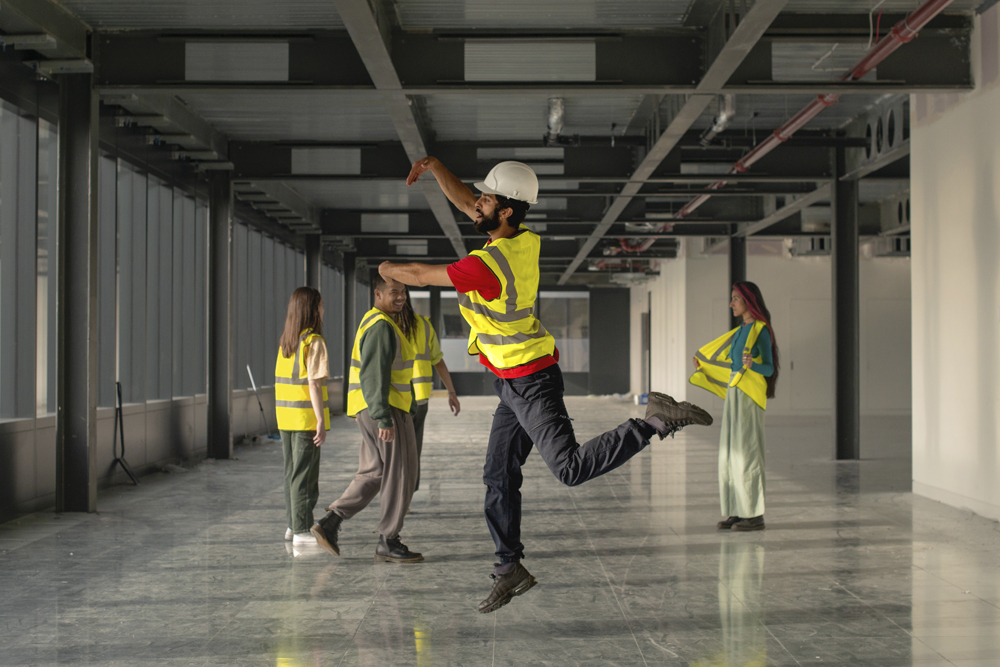Yes, this is a good news story about a very successful marriage between arts and business. And it’s proof that, contrary to popular opinion, the two are far from incompatible.
“British Land built our building and have supported us in every way ever since” says David Byrne, referring to the studio theatre in Regents Place which was built in 2010, off Euston Road nestling amongst British Land’s high rise office blocks. Since then the theatre has championed new work, offered practical support to young artists, received three Peter Brook awards for its programme, been named Fringe Theatre of the Year in the The Stage awards and won, in 2019, The Stage’s Innovation Prize for its programming model.
“Of course, the pandemic forced us to close our doors and we’ve spent a lot of time working out what we can do to help theatre people back to work” says David, who now intends to fling those doors open wider than ever. He recalls that when theatres were first shut, the “first people on the phone” were British Land wanting to know what they could do for NDT. “They put money in, wrote money off and continued our grant support” he says gratefully. “They sit on our board. They understand how culture can support community and we know them well and personally, from the CEO to the chap who does the security and looks after our building.”
There followed lots of discussions about what the industry needs after such a long-enforced closure. The eventual result was NDT Broadgate and a remarkable one-year project.
For twelve, post-pandemic months a 20,000 square foot, staffed rehearsal space will be available free of charge in Broadgate for the use of independents and freelancers. The site is a British Land owned area near Liverpool Street Station within the City of London, whose Corporation is also in support.
There will be 29 studios and on-site resources and training. “We reckon we can accommodate around 80,000 creatives during the year” says David.
He continues. “But of course, it’s not just for actors and directors. There are so many others in the industry who need help. I’m particularly concerned about young early-career theatre designers, for example. They’ve been hit very hard because they need facilities and expensive software which they simply can’t afford to access as most of them haven’t worked for over a year. We have what they need at NDT Broadgate.”
The partnership with British Land, with Jerwood Arts and Arts Council England, is actually a pretty straightforward way of working if the will is there. “It’s a rare moment. For once problems and awareness seem to be aligned” says David, telling me that it all felt quite easy to set up. “And we’ve published the blueprint explaining what we’ve done and how we’ve done it because it could be replicated anywhere. We’ve had enquiries from all over the UK and, interestingly from America, Canada and the rest of Europe.”
He adds “We really hope that such partnerships will spring up everywhere. This is an idea we definitely want people to steal!”
So how is it going to work in practice? David and his colleagues are still thrashing out the details but most applications to use the facilities will probably go through NDT or one of the four NDT Broadgate Associates – such as Nouveau Riche theatre company. “There will be various routes in and we shall work with as many people as we possibly can” says David explaining that more than half the space will go to companies and people involved in promoting ethnic diversity, deaf/disabled theatre and those from non-privileged backgrounds.
Lilli Geissendorfer, Director of Jerwood Arts picks up this point: “The project has been designed with inclusion at its heart, working not with one but with multiple artistic visions… creating a powerful and dynamic new approach to supporting early-career artists and creatives across the performing arts as we emerge from this pandemic.”
And David hopes the effects will ripple. “We want people who use NDT Broadgate to then invest the money they will have saved by using the free space to pay participants properly and make the work more accessible.”
David stresses, though, that this a one-year scheme to help the industry to “build back better”. He says that it is very expensive and would be unsustainable for any longer. “But it certainly needs to be there for the next twelve months.”



